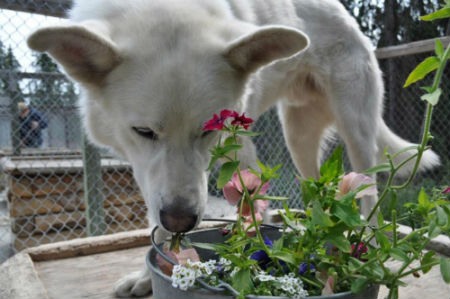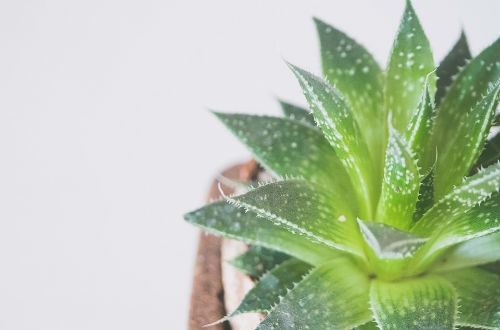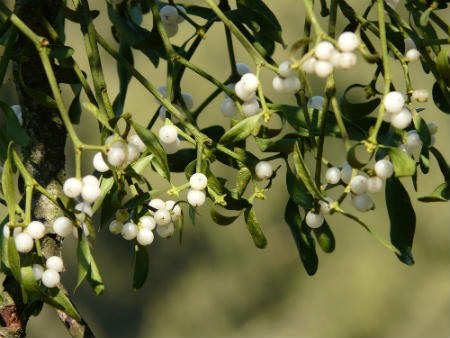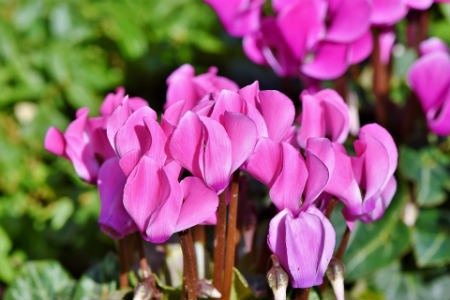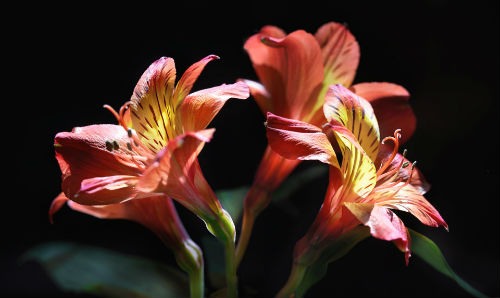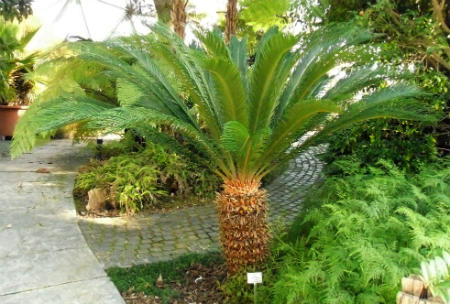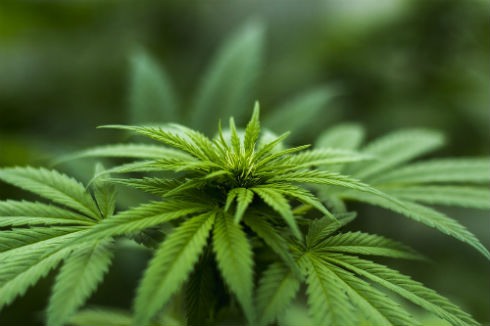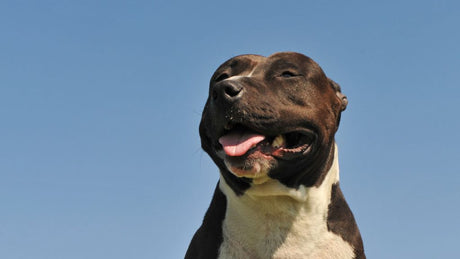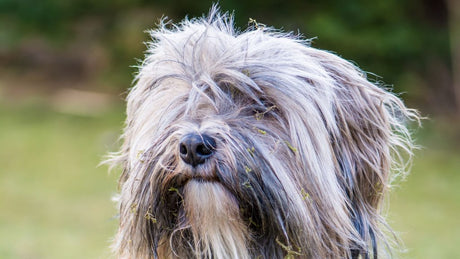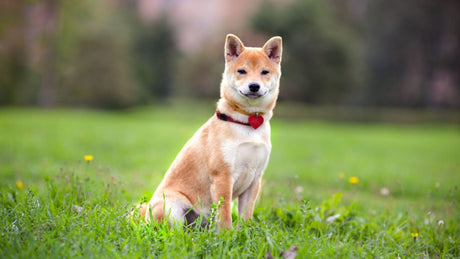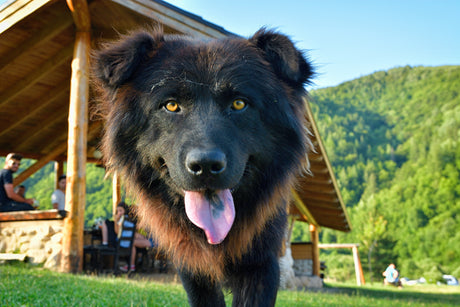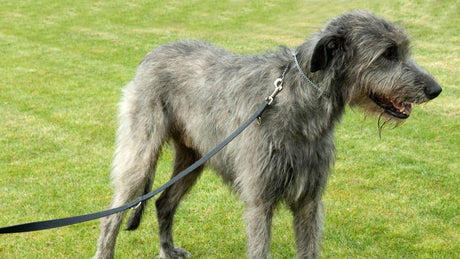If you are a pet and plant lover, we advise you to be especially careful with the combination of both, as you should know that there is a wide variety of
plants that are toxic and represent a terrible threat to dogs. Plants contain substances that can cause severe poisoning in animals. Therefore, it is important to know both the
plants that can cause harm to dogs , as well as the
symptoms of poisoning caused by them and what to do if it occurs.
Symptoms of plant poisoning
We don't always see our furry friends when they ingest any herb or plant that could harm them. Therefore, it is important that you know the
symptoms that occur when they suffer poisoning from eating or licking any of the plants that contain substances toxic to them. The most common symptoms are:
-
Respiratory problems : which occur with suffocation and drowning.
-
Kidney failure : which can cause the loss of an organ and even death.
-
Nervous system problems : causing tremors, paralysis, seizures, disorientation and, in extreme cases, they can induce a coma in the dog.
-
Digestive conditions : they normally manifest with diarrhea, vomiting and abdominal pain, which can worsen by causing intestinal bleeding.
-
Heart problems : which present as arrhythmias and can even lead to a heart attack.
-
Mucous membrane lesions : manifested by bleeding gums, excessive salivation and difficulty swallowing.
Skin inflammation and rashes may also occur on your delicate skin. If you notice any of these symptoms in your pet, do not waste time, as it is key in a case of poisoning. You must go urgently to the vet. You should not improvise and it is recommended not to give the dog water, food, or any type of medication, as it can be counterproductive.
If you have plants, take a sample of them to the veterinarian to possible rule out the cause of the poisoning, and thus apply the appropriate treatment as quickly as possible. In any case, it is advisable that you identify the type of plants you have at home to know whether or not they are toxic to your dog. You should be equally careful when you take it for a walk.
Flowers and plants toxic to dogs
There are numerous seemingly harmless flowers and plants that adorn our homes, inside or outside. But if there are pets in the house, attention must be paid to the type of flora we select to avoid accidents that could harm our furry friends. Below we mention some of those
plants that are dangerous for dogs :
Aloe vera
This plant has many healing benefits for humans. However,
it is very dangerous for canines . This gel can cause problems in the nervous and digestive systems.
Colchicum autumnale
Commonly known as autumn daffodil or
dogkiller . Its name is due to the
toxic effect it produces if a dog consumes it . It can cause severe vomiting, respiratory failure, and kidney and liver damage in the animal.
Mistletoe
If a dog eats the berries or leaves of this plant, it is very dangerous, since they contain substances capable of causing diarrhea, vomiting and convulsions, and can even induce a coma in dogs.
Lily of the valley (Convallaria majalis)
This is a plant with very striking bell-shaped flowers and a sweet smell, so it may attract the attention of our playful companions. However, it is a very
poisonous plant . Therefore, you should pay close attention and not leave them close to the animals' reach. These seemingly harmless flowers contain toxins that cause diarrhea, vomiting, serious heart problems and seizures. If a dog ingests this plant, an emergency visit to the veterinarian should be made.
Azalea and Rhododendron
These beautiful and decorative flowers are normally found in every garden. But they are as beautiful as they are toxic to dogs. Therefore, if your faithful friend consumes the flowers or leaves,
the effects can be fatal : starting with vomiting, diarrhea, tremors, paralysis, serious heart problems and coma.
Dieffenbachia and Philodendron
These are other very ornamental plants that normally adorn homes. However,
they represent a danger for dogs , as their toxicity can cause severe digestive problems, suffocation, tremors and injuries to the mucous membranes, such as bleeding gums, excess saliva and difficulty swallowing.
Cyclamen
The roots of this plant are particularly dangerous. Poisoning, if a dog eats it, causes severe vomiting, abdominal pain, kidney failure, paralysis, seizures and can even cause death. This is due to the component it contains called
cyclamine , which
has the effect of a powerful purgative .
Kalanchoe
These can cause vomiting, diarrhea and cardiac arrhythmia problems.
Oleanders
Its leaves and flowers are very toxic. They can cause severe vomiting, slow the pulse and can even cause death in dogs. This plant is found anywhere, so you have to be alert so that the dog does not come into contact with it.
Lilium
There are various types of this plant, some can cause irritation to the tongue, mouth and esophagus, among them are Callas, Alstroemeria and Spathiphyllum.
Daffodil
If your dog ingests these flowers you should take him to the veterinarian, since this plant contains a substance called
lycorine , which is a toxic crystalline alkaloid that causes diarrhea, vomiting, pain and even cardiac arrhythmias.
Sago Palm (Cycas revoluta)
Also known as
false palm , consumption of its seeds and leaves can cause dogs to vomit, damage to the stomach, blood in the stool, severe liver problems and can lead to death.
Tulips and Hyacinths
The toxic part of these plants is found in the roots, so you must pay attention that your dog does not remove them from the ground, because if they bite them they can cause irritation in the mouth and esophagus, excessive salivation, diarrhea and vomiting.
Dope
Cannabis has been tested on dogs in some scientific studies. Although it is not fatal, the consequences of its consumption due to the toxicity it contains can result in loss of consciousness, tremors, cardiac arrhythmias, disorientation and excessive salivation.
To end
Now that you know which plants are harmful to our dogs, be careful when you go out for a walk with your faithful friend to play in the park or pay attention to the plants and flowers you have in the garden.
More articles that may interest you:
